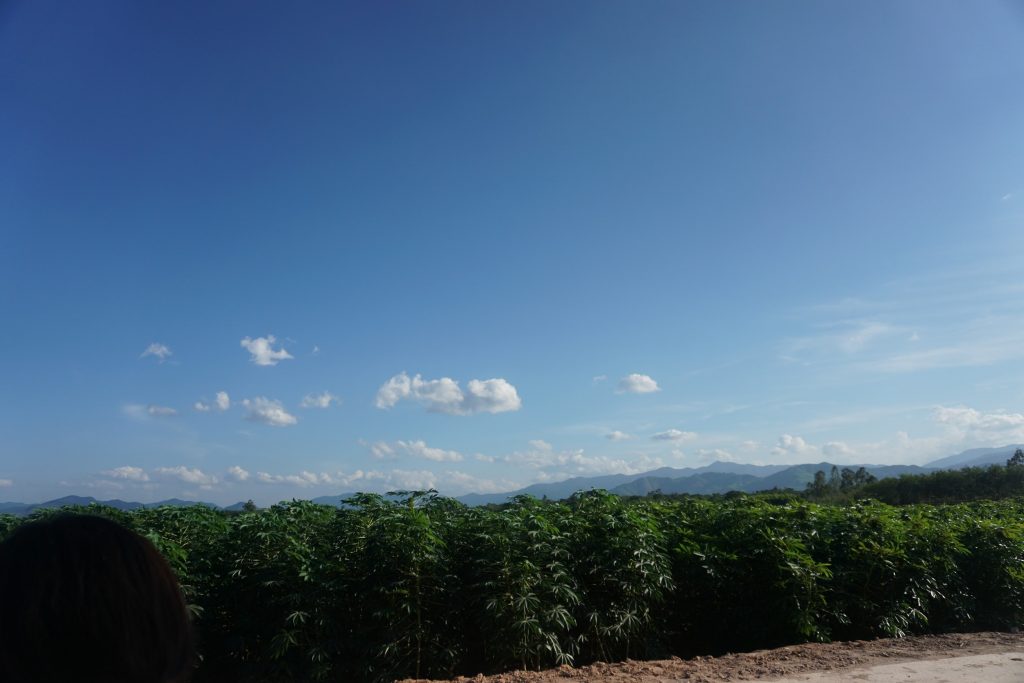
Many of our supported families have suffered big losses due to the drought happening across Vietnam. I started to notice a pattern every time I asked the question about how much their farms were able to produce and how much money they made off the rice, corn, or other crops. In each instance, a family would share that there is no extra money left over from farming but that the crop goes to food for the home. When most explained this, they would also mention that the crop was less than it has been in the past due to the drought. After clarification from AEPD coordinator Ngoc, I learned that the drought has been an imposition to many of the farmers here in Vietnam. I have done some research and according to some of the Vietnamese news outlets the central region where Dong Hoi is located has faced very high-water shortages. The National English Language Daily for Viet Nam News, in a July article said “Prolonged hot weather in the central region has caused low water levels in reservoirs and dams, seriously affecting agricultural production and the daily lives of local residents.”( You can read more about this here).
When I speak with consistent farmers like the Tran Thi Thao’s family who farm rice, peanuts, and beans, or the Phan That and Nguyen Huu Phuc families who strictly farm rice–they all mention that their crop is much smaller than what they usually have and it’s barely enough to provide food for the family, not to mention selling it for money. Even families that have fruit trees like Mr. Nguyen Ngoc Thin and Duong Thi An are afraid that their fruit trees will not produce as much because of the drought. I found it very interesting that even though this part of Vietnam is known to have pretty much the same four seasons as the U.S., they are currently suffering from a drought. However, I also think about my time here and I have only seen it rain 5 or 6 times in the last 21/2 months, and when it does rain it’s for short moments and then the sun is back with a vengeance. For these families, farming is a very important part of their livelihood. They live off of government compensation alone and the food from the farm truly helps them survive. Without their farm producing enough crops, they are forced to spend more money at markets or borrow money from relatives or neighbors to ensure they have enough food.
They are also the sole caregivers for their disabled children. Everything falls on the parents, many of them wives and mothers. They are forced to figure out how to make ends meet. In many communes there has been no rain in months, threatening their line of work. But as I discuss this with many of the families, they are not saddened by the results from the drought but amount it to the highs and lows of being a farmer. Farming is clearly not an easy job and in America we can easily take for granted the smallest things as rain or freshwater or machines that can water your crop for you. My grandparents live in a small town in North Carolina and I always see plenty of farms and crops growing but the difference there is that they have machines to water the crop and rain is frequent. I feel for these families because as someone who is always hot and sweating from only being outside for 10 minutes or less, I know that the crops are in jeopardy of dying which means our supported families have yet another struggle to consider. I am hoping that as their summer season comes to an end, the rain will come, and the harvest will be restored.
Posted By Mia Coward (Vietnam)
Posted Aug 12th, 2019

